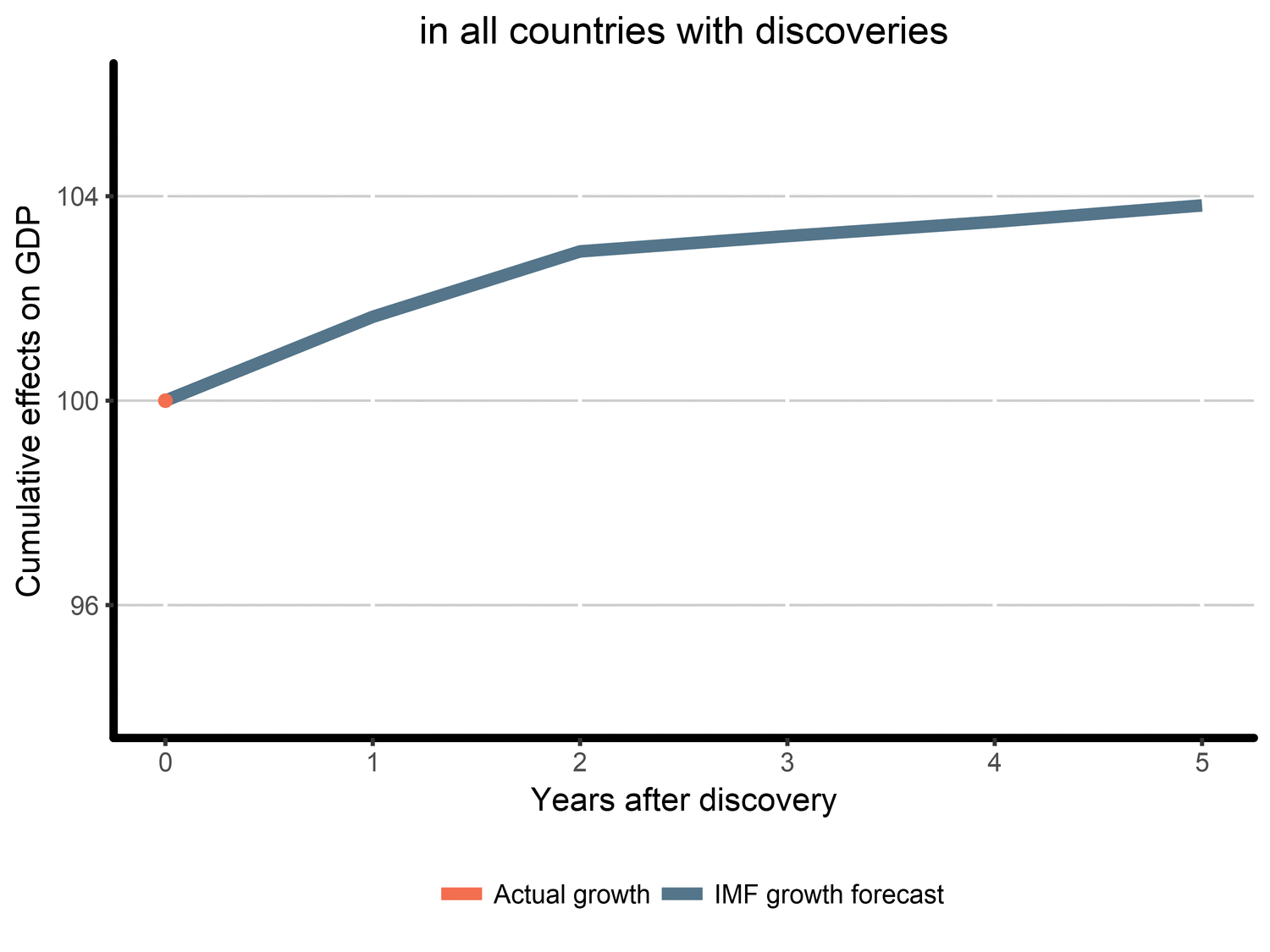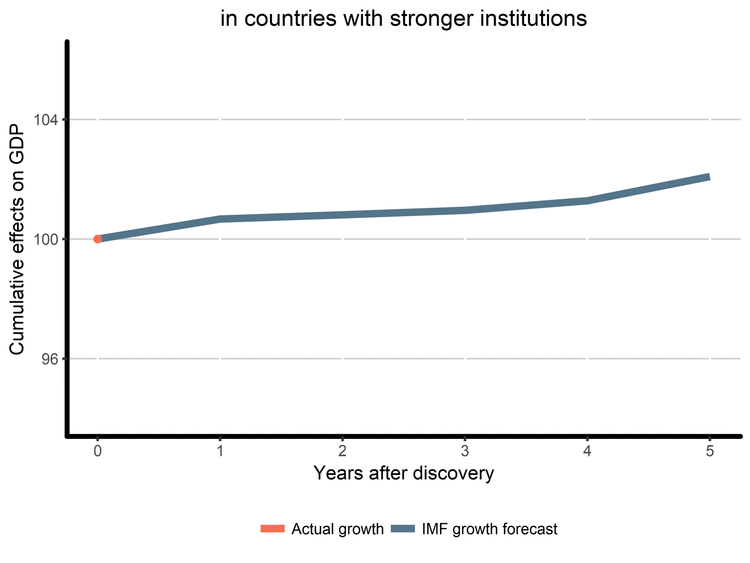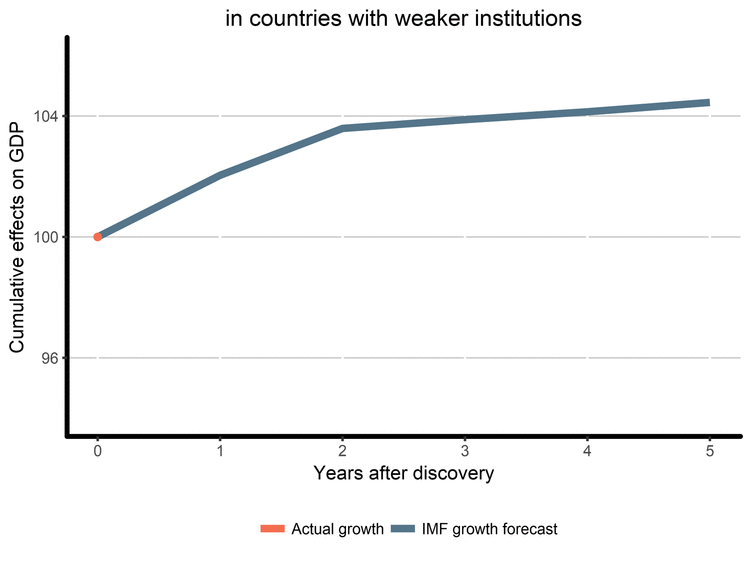
What is the Presource Curse?
Resource-rich countries tend to experience slower economic growth and more social problems than do less-endowed countries—a phenomenon dubbed the “resource curse.” But it turns out that in many cases, economic growth begins to underperform long before the first drop of oil is produced; this we call the “presource curse.”
In a recent research paper, we found that, following oil discoveries, growth systematically underperforms the forecasts made by the International Monetary Fund. For certain countries with weak institutions, the discoveries have even led to significant growth disappointments, compared with pre-discovery trends.
Short-term growth impact of giant oil and gas discoveries



We propose that the presource curse is driven by elevated expectations. Expectations can in turn drive suboptimal behavior. For example, governments may be pressured by voters to embark on risky borrowing on the back of overly rosy projections.
To find out more, read our new article published in Finance and Development.
The underlying World Bank research paper provides econometric evidence of this phenomenon.
Elsewhere, we discuss how expectations of resource wealth drove policy making in Ghana, Lebanon, Mongolia, Mozambique and Sierra Leone. On the other hand, Tanzania is an example of a country that so far has avoided the presource curse.
Our brief on premature funds discusses the risks of governments creating sovereign wealth funds in countries when resource revenues are small, distant or uncertain.
David Mihalyi is an economic analyst with the Natural Resource Governance Institute.
Jim Cust is an economist in the Office of the Chief Economist, Africa, at the World Bank.
